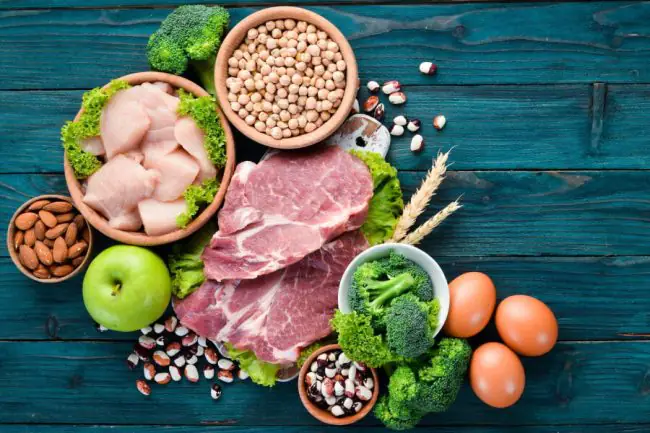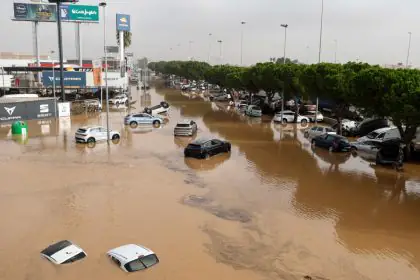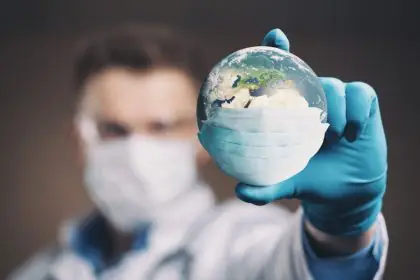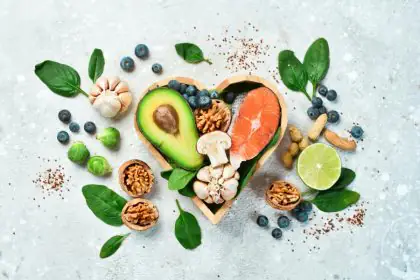Natural disasters can strike at any moment, right? leaving individuals and communities in trouble.
Whether it’s a hurricane, earthquake, flood, or wildfire, the chaos that results often troubles access to food and clean water, significantly impacting nutrition.
Check the guide carefully if you want to be prepared to support yourself and your loved ones through the essentials of maintaining health during these challenging times.
The Impact of Natural Disasters on Nutrition
Natural disasters have long-term effects on health and nutrition. When disaster strikes, food supplies can become limited, and access to grocery stores may be disrupted for days, weeks, or even longer.
Natural catastrophes can lead to physical dangers and psychological stress, which can impact eating habits and nutritional choices. Understanding how natural disasters affect nutrition is essential for effective emergency preparation.
The Role of Nutrition in Emergency Preparation
Good nutrition is foundational for physical and mental resilience during natural disasters. Proper nourishment helps individuals maintain strength, supports the immune system, and improves overall well-being.
The stress and physical strain of surviving during a disaster may increase the need for some nutrients in the body.
Physical and Psychological Effects of Disasters on Health
Natural disasters can lead to a range of health issues, including increased anxiety and depression.
These problems could originate from the absence of sufficient nutrition, which means nutritional requirements must be prioritized during crises.
Stress can lead to poor food choices, resulting in a cycle of unhealthy eating that increases health problems.
Being aware of those effects allows us to take precautionary measures to protect our health during natural disasters.
Essential Nutrients for Disaster Preparation
Preparing for Natural Disasters: What Nutrients Does the Body Need to Stay Healthy?
Importance of Macronutrients: Carbohydrates, Proteins, and Fats
- Carbohydrates: These are the body’s primary energy source. During stressful times, your body will require more energy to cope. Stocking up on whole grains, dried fruits, and energy bars can provide the necessary fuel during natural disasters.
- Proteins: They are important in aiding the recovery process mainly for 2 reasons: they are required in sufficient amounts for maintaining muscle mass and contribute to the immune system. To have enough protein, think of stuff like canned meats, legumes, and protein powder.
- Fats: These fats are essential for brain health and hormone production If you are looking for some nuts and seeds and other oil, you could also try to include them in your emergency supplies.
Key Vitamins and Minerals to Include in Your Emergency Supply
- Vitamin C: Supports immune function and is found in canned fruits and vegetables.
- Vitamin D: Needed for bone health and can be found in fortified foods.
- Calcium: Essential for bone health; use powdered milk or calcium-enriched products.
- Magnesium: Supports with muscle function and can be found in nuts and whole grains.
Hydration: Sustaining Water Intake During Emergencies
Water is essential for survival, especially during natural disasters. Dehydration can occur quickly, making it important to have enough water on hand.
Include at least one gallon of water per person per day for several days, and add electrolyte-replenishing drinks (like Pedialyte) to your emergency supplies.
Choosing the Right Foods for Your Emergency Kit
Natural catastrophes vary however when gathering your emergency food makes it possible for you to have lasting products that need slight cooking and are nourishing.
Long-lasting Food Options for Nutrition-On-The-Go
- Canned Goods: Look for low-sodium options to avoid excess salt. Canned fruits, vegetables, and beans provide essential nutrients without the need for refrigeration during catastrophes.
- Dried Foods: Dried fruits, Nuts, and Seeds have a very high calorific value and make short work of fulfilling your energy and nutrient needs. They are also easy to store and wear.
- Freeze-Dried Meals: These meals retain nutrients and can be easily prepared with just water, making them ideal for emergencies related to catastrophes.
How to Select Foods with High Nutritional Value and Low Sodium
Reading labels is important. Choose items that are high in fiber and protein while low in added sugars and sodium to support health during catastrophes.
The Benefits of Canned, Dried, and Freeze-Dried Foods: These types of food will not go bad quickly, have a low weight, and are easy to prepare. In natural disasters, they deliver comfort without losing nutrients.
Meal Planning Strategies for Natural Disasters
Even with limited resources, it’s possible to create balanced meals that meet nutritional needs during natural disasters.
How to Create Balanced Meals with Limited Resources
Try meals that have a variety of macronutrients. For example, combine whole grains with canned beans and some dried fruit for a balanced meal that supports health during natural disasters.
Adjusting Recipes to Use Available Ingredients
Try recipes based on what you have. For instance, if fresh vegetables are unavailable, use canned or dried alternatives.
Stocking Up on Snacks: Energy Boosts for Stressful Times
Staying energetic during stressful times could be made easy with healthy snacks. Granola bars, nut butter packets, and trail mix are all great forms of energy, which is important during natural catastrophes.
Food Safety Tips During Emergencies
During natural catastrophes, food safety is vital to avoid food-borne diseases.
Avoiding Foodborne Illnesses in Disaster Situations
Be cautious about food handling and storage during natural disasters. If the power goes out, avoid opening refrigerators and freezers unnecessarily to keep food cold as long as possible.
Storage Solutions: Keeping Food Safe Without Electricity
Consider investing in coolers or ice packs to keep Easily spoiled items safe during natural disasters.
Cooking food safely, whether using a camping cooker or charcoal grill, is also an important plan.
Understanding Shelf Life and Expiration Dates
Be aware of the shelf life of your food supplies during natural disasters. Regularly check expiration dates and restock to ensure freshness.
Special Nutritional Considerations for Vulnerable Populations
Specific groups may have unique dietary requirements in the face of natural catastrophes.
Nutrition Needs of Children and Infants During Disasters
Babies may need certain baby food, while children need balanced meals to support their growth. Be sure to stock up on suitable foods for younger family members during natural disasters.
Dietary Considerations for the Elderly and Those with Chronic Conditions
Older adults and individuals with chronic health conditions may have specific dietary restrictions. Consult with a healthcare professional to plan accordingly during natural disasters.
Supporting Mental Health Through Nutrition in Crisis Situations
Nutrition plays a significant role in mental well-being. During natural disasters, maintaining a balanced diet can help reduce stress and anxiety.
Community Resources for Nutritional Support During Disasters
Many communities offer resources to support nutritional needs during natural disasters.
- Local Food Banks and Emergency Assistance Programs: Food banks often provide essential supplies during natural disasters. Research local organizations that can offer assistance when needed.
- Government Initiatives for Disaster Relief Nutrition: Stay informed about government programs designed to provide nutritional support during natural disasters, which may include food distribution efforts.
- Engaging with Local Health Professionals and Nutritionists: Consider connecting with local health professionals or nutritionists for tailored advice on maintaining nutrition during emergencies related to natural disasters.
Conclusion
In times of crisis, nutrition is essential for health and resilience. By understanding the nutritional needs during natural disasters, individuals can better prepare themselves and their families.
Stocking up on essential food supplies, focusing on hydration, and utilizing community resources can make a significant difference in maintaining health during emergencies.
FAQs
How can we help people during natural disasters?
Providing information on nutrition and access to food resources can significantly help individuals affected by natural disasters.
How do disasters impact the nutritional status of individuals?
Natural disasters can disrupt food supply chains, leading to limited access to nutritious food and increased risk of food insecurity.
What is the importance of nutrition in emergencies?
Proper nutrition supports physical and mental health, aiding in recovery and resilience during crises.
What food is good for disaster?
Non-perishable foods like canned goods, dried fruits, and freeze-dried meals are excellent choices for emergencies, providing essential nutrients without requiring refrigeration.







